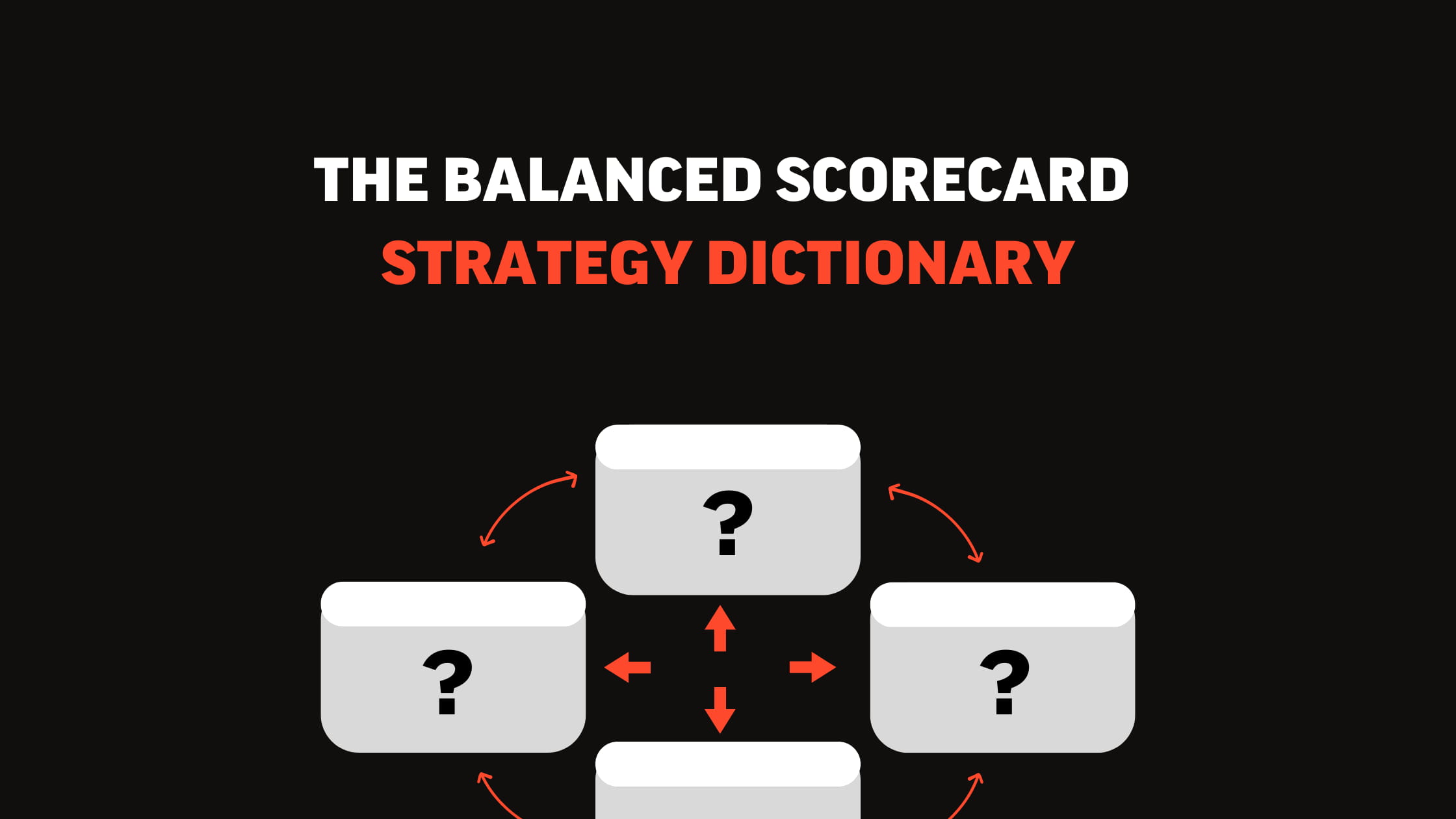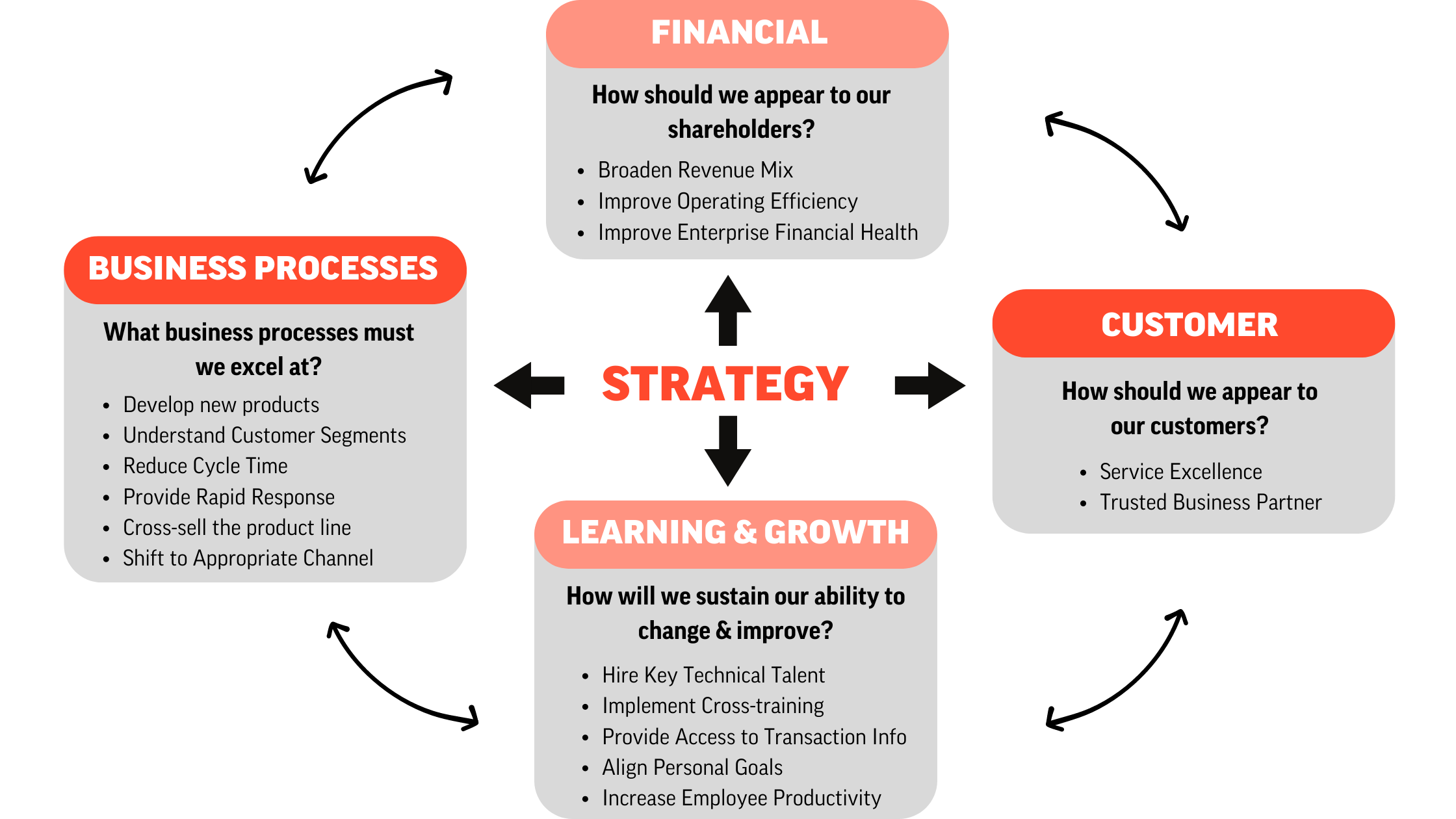What is a Balanced Scorecard?

Balanced Scorecard (BSC) is a methodology for measuring strategic management performance. Robert Kaplan and David Norton introduced the concept in their 1992 Harvard Business Review article, “The Balanced Scorecard: Measures that Drive Performance.” Kaplan and Norton later wrote a bestselling book, The Balanced Scorecard: Translating Strategy into Action, in 1996.
Financial performance indicators are an accurate enough measurement historically speaking, but can’t take into account leading performance indicators that predict future results. The Balanced Scorecard methodology offers a multifaceted view of business success—countering the shortcomings of lagging financial indicators to gauge performance.
The Balanced Scorecard includes four perspectives to strategy success:
- Financial Perspective
- Customer Perspective
- Business Process Perspective
- Learning and Growth Perspective
Elements within each perspective include:
- Strategic Objectives: qualitative description of the Desired State
- Measures: Key Performance Indicators that measure progress
- Targets: desired financial outcomes
- Initiatives: activities implemented to achieve targets
The following illustrates a Balanced Scorecard approach to strategy:

The BSC offers a balance between short-term and long-term objectives; desired outcomes and their performance drivers; and objective/subjective ways of measuring progress.
Our specialists can help you structure your strategy in any framework. Book a meeting today and make your strategy fit your organization.




.png?width=596&name=Team%20Alignment%20(1).png)




.png?width=80&name=Team%20Alignment%20(1).png)
.png?width=80&name=Strategy%20Evaluation%20(1).png)